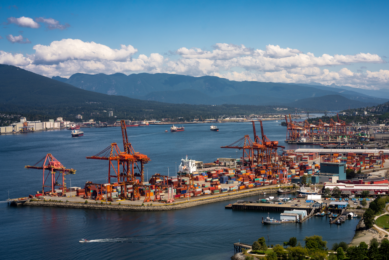Canada’s pork sector under pressure: Quebec clashes and China tariffs weigh heavily

From internal disputes over production caps in Quebec to stagnant export conditions caused by steep Chinese tariffs, Canada’s pork industry is facing multiple headwinds. Regional decline, frustrated specialty producers, and political trade tensions are fuelling uncertainty across the sector.
Well-known Quebec pork producer/processor du Breton, which markets organic pork, pork raised without the use of gestation crates and without antibiotics, has again stated that the plan of the Éleveurs de porcs du Québec (EPQ) is poised to cause “unjustified and counterproductive impacts on it and other specialized producers.
Du Breton says the plan’s mechanism for reducing reference volumes based on a proportional calculation of surpluses means that several of its partner-producers could face cuts of up to 40% of their income on animals produced in excess of their historical levels.
Although organic and animal welfare-certified productions are excluded from the plan, du Breton also wants gestation crate-free production excluded.
President of du Breton, Vincent Breton, has stated that “this plan in no way reflects current market realities. Our producers are threatened while demand for their type of production is growing. This is a blatant demonstration that the EPQ union does not adequately represent the interests of duBreton or its partner breeders. They are even hindering the development of the Quebec pork industry at a time when it needs support, not unnecessary obstacles.”
Breton and others are calling for a referendum on the issue.
Regional production dropping
Also in Quebec, the Union des producteurs agricoles (UPA) notes that pork production has fallen significantly (30%) in a region called Charlevoix over the past 3 years. The number of farms has dropped in the region by 6 since 2020, and the UPA predicts that with the current economic climate, this trend will continue if nothing is done.
The UPA points to the inequality in the distribution of compensation offered by the Agricultural Income Stabilization Insurance to be a factor in farm closure and wants the situation rectified.
Tariffs unchanged
At a national level, Canadian pork producers who ship pork to China continue to be affected by tariffs. In March, China imposed 25% tariffs on Canadian pork and seafood and 100% tariffs on Canadian canola oil, canola meal and peas – in apparent retaliation of Canada’s tariffs placed last year on electric vehicles from China.











